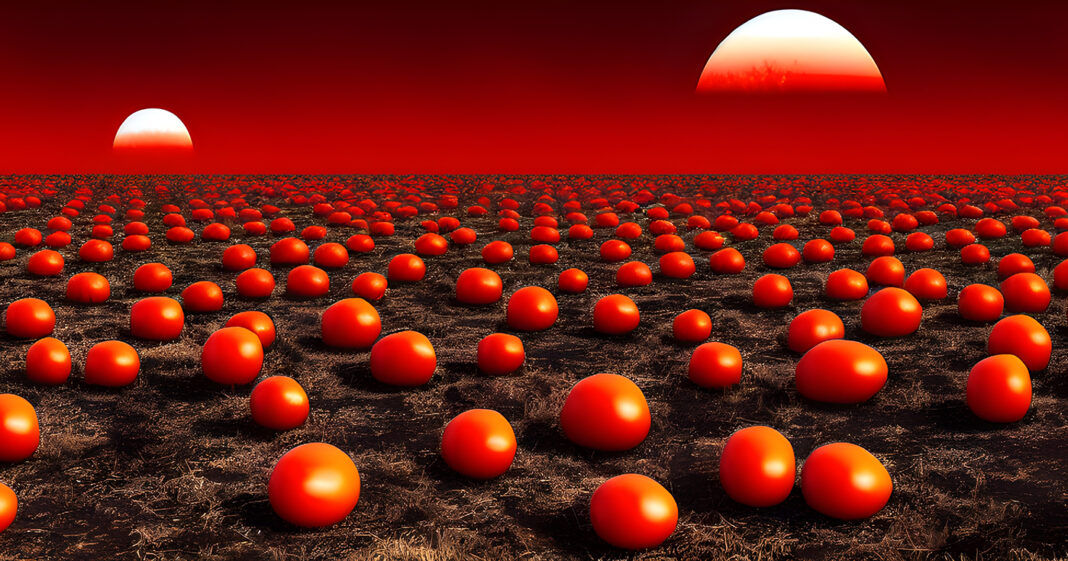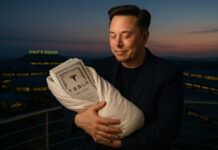Pasadena, CA — Tomatoes, not roses, appears to be the topic of conversation in the City of Roses. Tomatoes are grown with the help of artificial intelligence. OpenAI’s ChatGPT has sparked a fresh, odd dispute among some Pasadena locals who fear they may be poisonous.
The urban farmer that is allegedly responsible for the “ChatGPT Tomatoes” is reportedly seeking guidance from the language model for the best growth conditions, watering schedules, and soil composition. Although there is no evidence that ChatGPT affects tomato yields, this has not stopped the residents of Pasadena from debating the topic at length.
This issue was very important to off-the-grid Tik Tok influencer Beamer Stepkinder, who fancies themselves an organic guru.
“I don’t believe a word a machine says, dude. Certainly, not something I would ingest. She protected her heirloom tomato, saying, “I’ll stick to my organic, hand-grown tomatoes, thank you very much.”
Someone who only goes by the name “Starflower” agreed with Beemer’s worries.
“Look, I know what you can do with AI, and it scares me. Not sure if I want my tomatoes involved in that. Suppose it gives them extraordinary abilities; what then? Starflower exclaimed, “I’m all for progress, but this is too much,” as she cautiously surveyed her tomato plants.
Some local stores have capitalized on the public’s fears despite a lack of evidence that tomatoes grown with ChatGPT’s advice are unsafe. Along with the more common “GMO-Free” and “Organic” labels, “ChatGPT-Free Tomatoes” placards have started appearing in grocery store produce departments.
All the fuss mystified middle-class dad Jonathan Hemple.
Like Google, it’s basically a computer program giving recommendations. Sorry, but I just don’t get it. I’ll eat tomatoes if they have a pleasant flavor. Hemple shook his head at the absurdity of the thought that AI might make tomatoes harmful.
Local horticulturist Dr. Karen Dawson has voiced her displeasure with current affairs.
There is no evidence to suggest that tomatoes grown with the assistance of ChatGPT taste any different than those grown with conventional gardening resources. Dr. Dawson has stated that the widespread exploitation of this unwarranted worry is disheartening.
Meanwhile, the urban farmer who started all this is unfazed by the backlash.
The truth is, all I wanted was some guidance on improving my tomato crop. The farmer claimed, “I had no idea it would cause such a stir,” and then asked to remain anonymous. “The tomatoes are just tomatoes,” the farmer said, “but if all this attention means I can sell them for a higher price, then I won’t complain.”
The lowly tomato appears to be caught in the crossfire as global concerns about artificial intelligence and technology increase. As the discussion continues, one thing becomes abundantly clear: Pasadena residents have never been more proud of their harvest.






